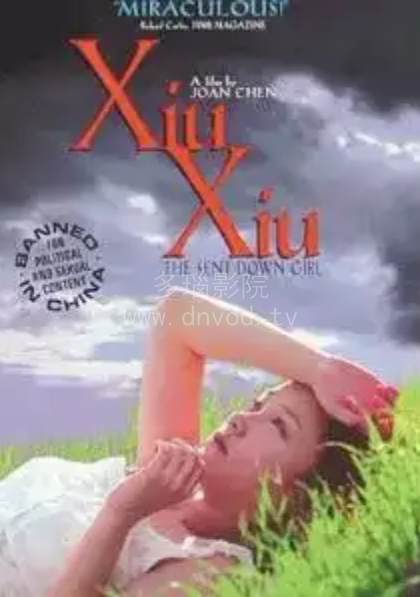Plot:
Chen Chong, a mainland actress who has lived in the United States for many years and has already gained a place in the international film industry, chose a story that took place during the Cultural Revolution when she first became a director, probably because it was a historical memory that she and her peers could not forget. The plot describes Wenxiu as an educated youth in the late Cultural Revolution. She was selected to follow the Tibetan Lao Jin to learn horse herding. Lao Jin had his genitals cut off in a fight among Tibetans and did not have the sexual desires of ordinary men. Wenxiu quickly changed from being cautious to completely trusting him. Lao Jin also loved this innocent teenage girl. However, the farm office still did not come to pick up Wenxiu after the agreed six months, which made her gradually anxious and irritable, and she vented all her resentment on Lao Jin. Wenxiu longed to go home, so she offered her virginity to him under the sweet temptation of the supply and marketing clerk. Although Lao Jin knew that Wenxiu was being played with, he could not say anything. Soon, Wenxiu became the object of the powerful men in the field office, who took turns to play with her. They completely ignored Lao Jin's existence and bossed him around. Lao Jin could no longer bear it and denounced Wenxiu for selling her out. Wenxiu retorted: You have no share in the sale! Wenxiu's sacrifice did not bring her a chance to return to the city. Instead, she got pregnant, and it was not known who was responsible. Lao Jin took Wenxiu to the field office in anger, and finally shot Wenxiu in despair and buried her with her. The director handled this unusual story of a single man and a single woman with a very delicate technique. The two actors also appropriately interpreted the personalities of the protagonists and vividly showed their psychological changes as the plot progressed. The symbolic use of apples and water is also quite clever. The film uses the memories and imagination of a young boyfriend of Wenxiu in Chengdu to describe Wenxiu's tragedy. The narration is quite literary, and in the faint recollection, there is a accusation that the political atmosphere of the Cultural Revolution devours human nature. Director of photography Lu Le fully grasped the natural beauty of the Tibetan grasslands, and many images exude poetry, and the soundtrack of insects is also touching. Therefore, although this film is only a literary piece, it presents a kind of exquisite high quality in all aspects, and won seven awards including the Best Picture at the Golden Horse Awards.

